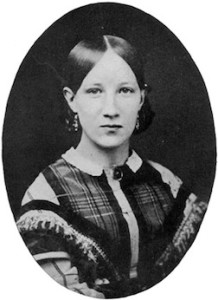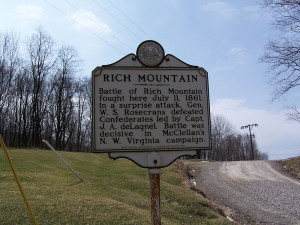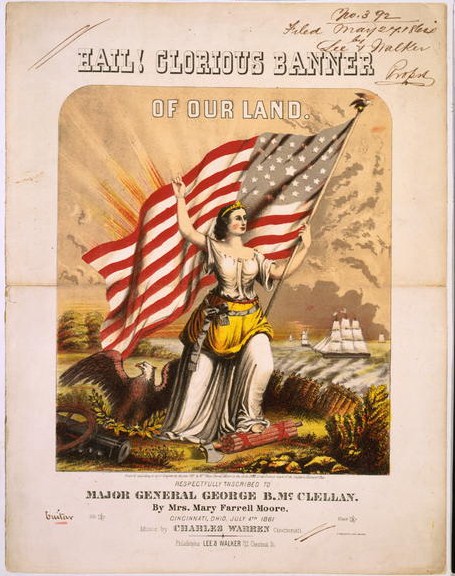The Ladies’ Aid Society in Canandaigua, New York began 1863 by attending a P. T. Barnum lecture and by writing an adoring letter to the deposed General George B. McClellan.
From Village Life in America 1852-1872 by Caroline Cowles Richards (149-151):
January 13.—P. T. Barnum delivered his lecture on “The Art of Money Getting” in Bemis Hall this evening for the benefit of the Ladies’ Aid Society, which is working for the soldiers. We girls went and enjoyed it.
February.—The members of our society sympathized with General McClellan when he was criticised by some and we wrote him the following letter:
“Canandaigua, Feb. 13, 1863.
“Maj. Gen. Geo. McClellan:
“Will you pardon any seeming impropriety in our addressing you, and attribute it to the impulsive love and admiration of hearts which see in you, the bravest and noblest defender of our Union. We cannot resist the impulse to tell you, be our words ever so feeble, how our love and trust have followed you from Rich Mountain to Antietam, through all slanderous attacks of traitorous politicians and fanatical defamers—how we have admired, not less than your calm courage on the battlefield, your lofty scorn of those who remained at home in the base endeavor to strip from your brow the hard earned laurels placed there by a grateful country: to tell further, that in your forced retirement from battlefields of the Republic’s peril, you have ‘but changed your country’s arms for more,—your country’s heart,’—and to assure you that so long as our country remains to us a sacred name and our flag a holy emblem, so long shall we cherish your memory as the defender and protector of both. We are an association whose object it is to aid, in the only way in which woman, alas! can aid our brothers in the field. Our sympathies are with them in the cause for which they have periled all—our hearts are with them in the prayer, that ere long their beloved commander may be restored to them, and that once more as of old he may lead them to victory in the sacred name of the Union and Constitution.
“With united prayers that the Father of all may have you and yours ever in His holy keeping, we remain your devoted partisans.”
Signed by a large number.
The following in reply was addressed to the lady whose name was first signed to the above:
“New York, Feb. 21, 1863.
“Madam—I take great pleasure in acknowledging the receipt of the very kind letter of the 13th inst., from yourself and your friends. Will you do me the favor to say to them how much I thank them for it, and that I am at a loss to express my gratitude for the pleasant and cheering terms in which it is couched. Such sentiments on the part of those whose brothers have served with me in the field are more grateful to me than anything else can be. I feel far more than rewarded by them for all I have tried to accomplish.—I am, Madam, with the most sincere respect and friendship, yours very truly,
Geo. B. McClellan.”
The general always seems to care for and respect his troops. Maybe too much.
According to Wikipedia’s account of McClellan’s early work in northwest Virginia (with references to George B. McClellan: The Young Napoleon by Steven W. Sears):
His forces moved rapidly into the area through Grafton and were victorious at the tiny skirmish called the Battle of Philippi Races, arguably the first land conflict of the war. His first personal command in battle was at Rich Mountain, which he also won, but only after displaying a strong sense of caution and a reluctance to commit reserve forces that would be his hallmark for the rest of his career. His subordinate commander, William S. Rosecrans, bitterly complained that his attack was not reinforced as McClellan had agreed. Nevertheless, these two minor victories propelled McClellan to the status of national hero. The New York Herald entitled an article about him “Gen. McClellan, the Napoleon of the Present War.”
Brian M. Powell’s photo of the Rich Mountain maker is licensed by Creative Commons



